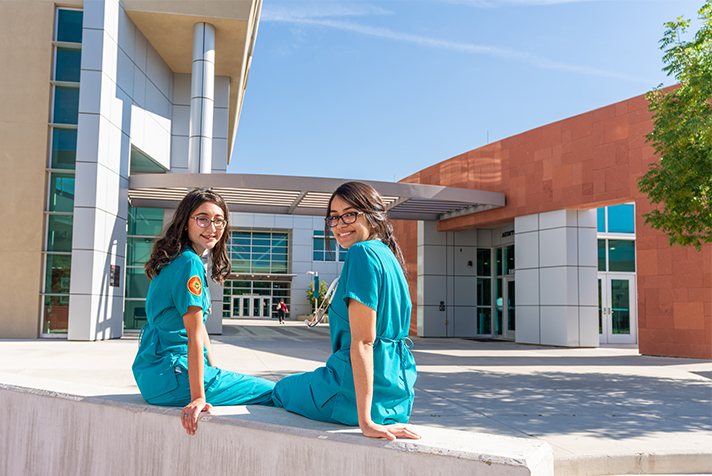Does an F1 Student Have Legal Residence in the USA?
The F1 visa opens doors for international students to pursue world-class education in the United States. However, it brings questions about its implications on legal residence and rights. If you’re an F1 student, immigration lawyer, or educational institution trying to disentangle these intricacies, you’ve come to the right place.
So, does an F1 student have legal residence in the USA? The short answer is No, The F1 visa is temporary and bound to educational purposes This article will add more clarity on whether the F1 visa grants legal residence, outlines rights and responsibilities while on an F1 status, and explore pathways to legal permanent residence in the U.S.
Understanding the F1 Visa

Before we discuss legal residence, it’s essential to understand the purpose and framework of the F1 visa.
What Is the F1 Visa?
The F1 visa is a non-immigrant visa category, meaning it is designed for students who plan to temporarily reside in the U.S. while attending an academic program or learning English at an accredited U.S. institution.
What Is “Legal Residence”?
“Legal residence” refers to an individual’s right to reside permanently in the U.S. as a lawful permanent resident (LPR). It is distinct from being in a temporary and lawful status, such as holding an F1 visa.
Overview of the F1 Visa
Purpose of the F1 Visa
The F1 visa enables international students to enroll in full-time academic programs in the U.S., supporting their educational aspirations while fostering cultural exchange.
Eligibility Criteria for F1 Students
To qualify for an F1 visa, applicants need to:
- Enroll in a full-time program at an accredited institution.
- Demonstrate sufficient financial resources to cover education and living expenses.
- Prove intent to return to their home country after completing their studies.
Key Benefits of the F1 Visa
- Access to renowned U.S. institutions and diverse academic programs.
- The ability to work in limited capacities through on-campus jobs, Curricular Practical Training (CPT), or Optional Practical Training (OPT).
What Is Legal Residence and How Does It Differ?
The distinction between “legal residence” and “immigration status” often creates confusion.
Definition of Legal Residence
Legal residence is synonymous with lawful permanent resident status, frequently achieved via a Green Card. It grants indefinite permission to live and work in the U.S.
Legal Immigration Status vs. Legal Residence
F1 visa holders have a legal immigration status allowing them to reside temporarily in the U.S. while adhering to F1 regulations. They are not granted permanent legal residence.
Does an F1 Student Have Legal Residence in the USA?

Temporary Nature of the F1 Visa
The F1 visa is temporary and bound to educational purposes. Its validity depends on the “Duration of Status” (D/S) shown on a student’s I-20 form and Form I-94.
Restrictions and Limitations
F1 visa holders:
- Cannot work off-campus without authorization.
- Cannot seek permanent residence solely based on their F1 status.
- Must leave the U.S. within 60 days of completing their program unless they transition to another legal status.
Rights of F1 Students in the USA
Work Opportunities
While restricted, the F1 visa offers specific work options:
On-Campus Employment
F1 students may work on-campus for up to 20 hours per week during the academic term and full-time during breaks.
Curricular Practical Training (CPT)
CPT allows students to gain course-related work experience. Authorization must be granted by the Designated School Official (DSO).
Optional Practical Training (OPT)
OPT provides an opportunity to work for 12 months post-graduation in a field related to the student’s major. STEM graduates may extend OPT for an additional 24 months.
Travel and Re-Entry Privileges
F1 students may travel abroad and re-enter the U.S. with proper documentation while their visa is valid.
Responsibilities of F1 Students
Maintaining Visa Status
Students must maintain full-time enrollment and avoid unauthorized work or prolonged absences from classes.
Reporting Requirements
F1 students must:
- Keep the DSO updated on address changes and major changes (like switching programs).
- Periodically confirm records in the Student and Exchange Visitor Information System (SEVIS).
Transitioning to Legal Permanent Residence (Green Card)

Can F1 Students Apply for a Green Card?
Yes, F1 students can eventually seek permanent residency, but they must qualify through specific pathways:
Employment-Based Pathways
One common route is transitioning to an H1-B visa and applying for permanent residency through employer sponsorship.
Family-Based Pathways
Immediate relatives (parents, spouses) who are U.S. citizens can sponsor F1 students for a Green Card.
Special Programs Like EB-5
The EB-5 Investor Visa offers a pathway to a Green Card for those who invest substantial funds in U.S. job-creating ventures.
ALSO READ:
| Do international student need a visa to Hawaii from the USA? |
| Can an international student get a TLSAE online? |
| Can you have f1 and m1 visas? |
| Why do international students have restricted work hours? |
Common Misconceptions About F1 Students’ Residency
Misunderstanding the Term “Residency”
“Residency” for F1 students refers to lawful stay for their educational tenure, distinct from the concept of legal permanent residence.
Confusion Between Visa Status and Permanent Residency
Being “in status” under F1 does not equate to holding lawful permanent resident status.
Challenges F1 Students Face in the USA
Navigating Legal Frameworks
Understanding visa regulations and work rules can be daunting without proper guidance.
Managing Work and Study Restrictions
Limited work opportunities and the need for consistent academic performance add to the pressures F1 students face.
Tips for Maintaining Legal F1 Status
- Stay informed about changes in immigration policies and F1 visa requirements.
- Rely on professional immigration attorneys for matters like CPT, OPT, or visa extensions.
Alternatives to the F1 Visa for Studying in the USA
J-1 Visa
Designed for exchange students, scholars, and trainees involved in cultural and educational exchanges.
M-1 Visa
Tailored for students taking vocational or non-academic courses.
Benefits of the F1 Visa Despite Limitations
- Access to World-Class Education: Enroll in Ivy League institutions, cutting-edge research programs, and more.
- Unparalleled Networking Opportunities: Build connections vital to your career.
FAQs
Can F1 Students Become Permanent Residents?
Yes, but they must apply through employment, family sponsorship, or special programs like EB-5.
Are F1 Students Considered Residents for Tax Purposes?
F1 students are typically considered non-residents unless they meet the substantial presence test for tax purposes.
What Happens if an F1 Student Overstays Their Visa?
Overstaying violates F1 status, which may lead to deportation or complications with future visa applications.
Can F1 Students Travel Internationally?
Yes, with valid visas and travel documents. However, re-entry is subject to immigration approval.
How Long Can F1 Students Stay After Completing Their Studies?
F1 students can stay for up to 60 days after completing their program unless transitioning to another visa type.
Conclusion

The F1 visa grants temporary legal status, not permanent residence. It allows countless international students to pursue their academic dreams, though it comes with notable restrictions. While transitioning to legal residence is possible, it requires proactive planning and a thorough understanding of immigration law.
If you’re an F1 student, consider connecting with an immigration attorney or advisor for personalized advice. Opportunities abound for those who are informed and well-prepared.






